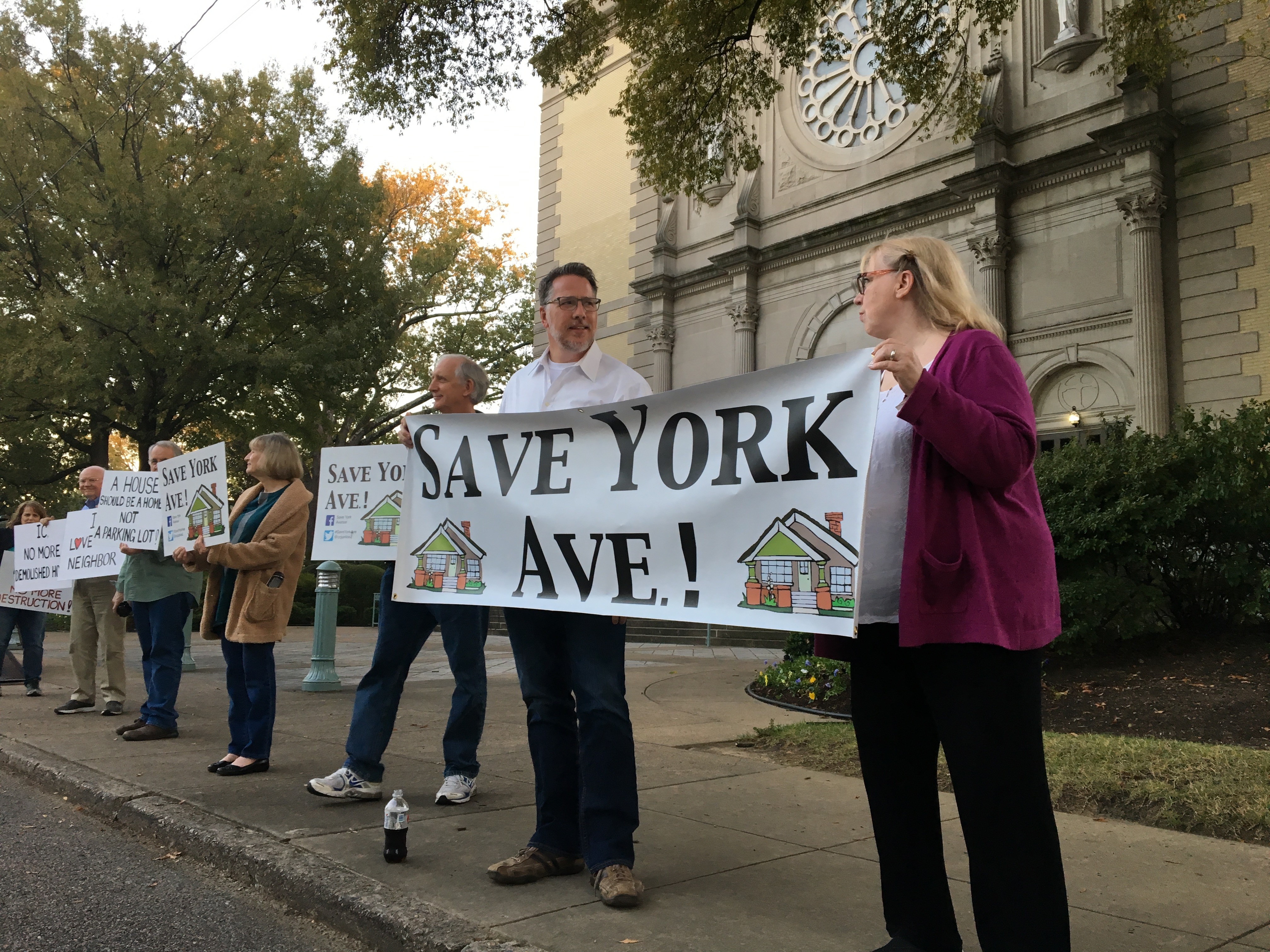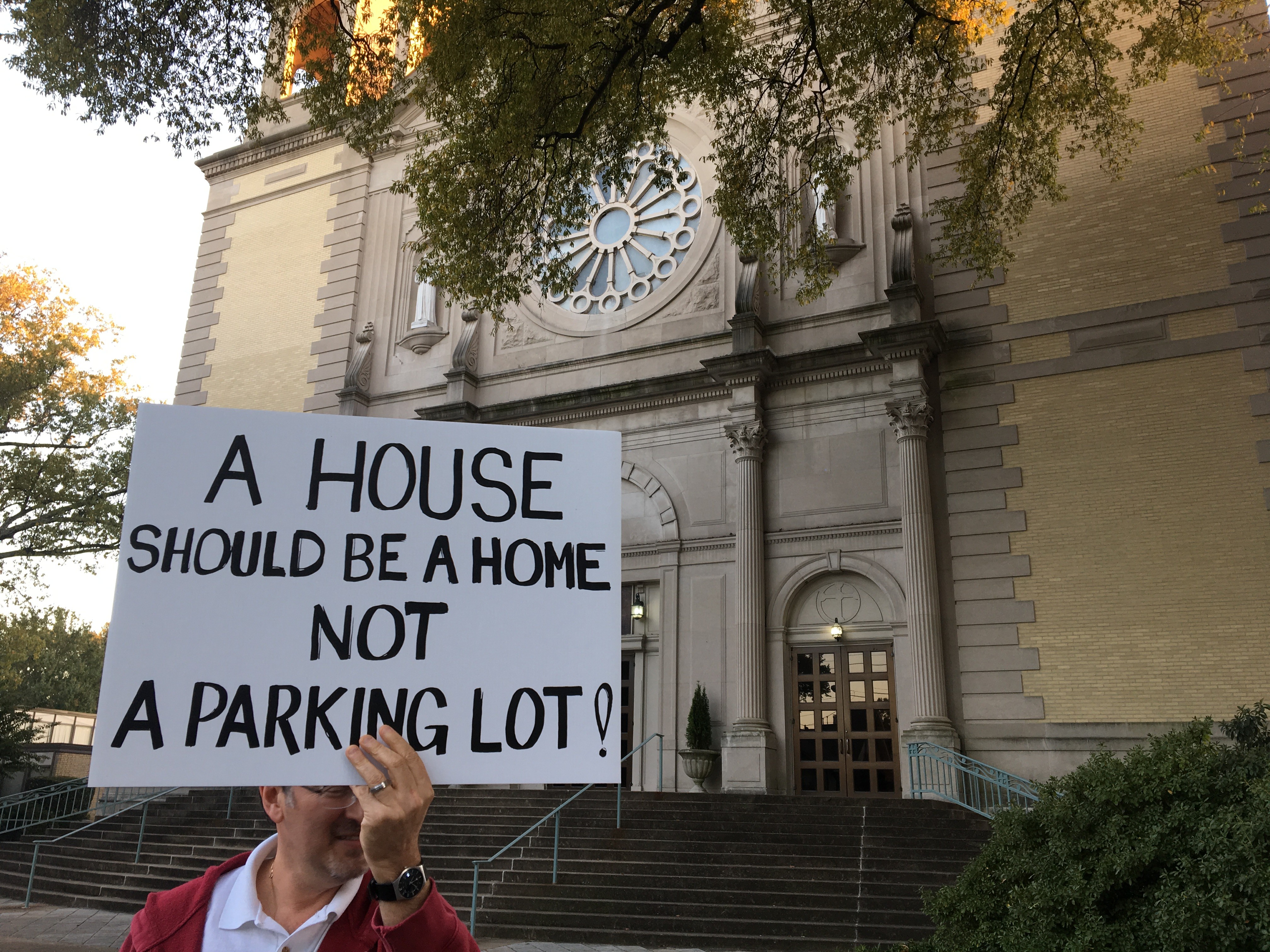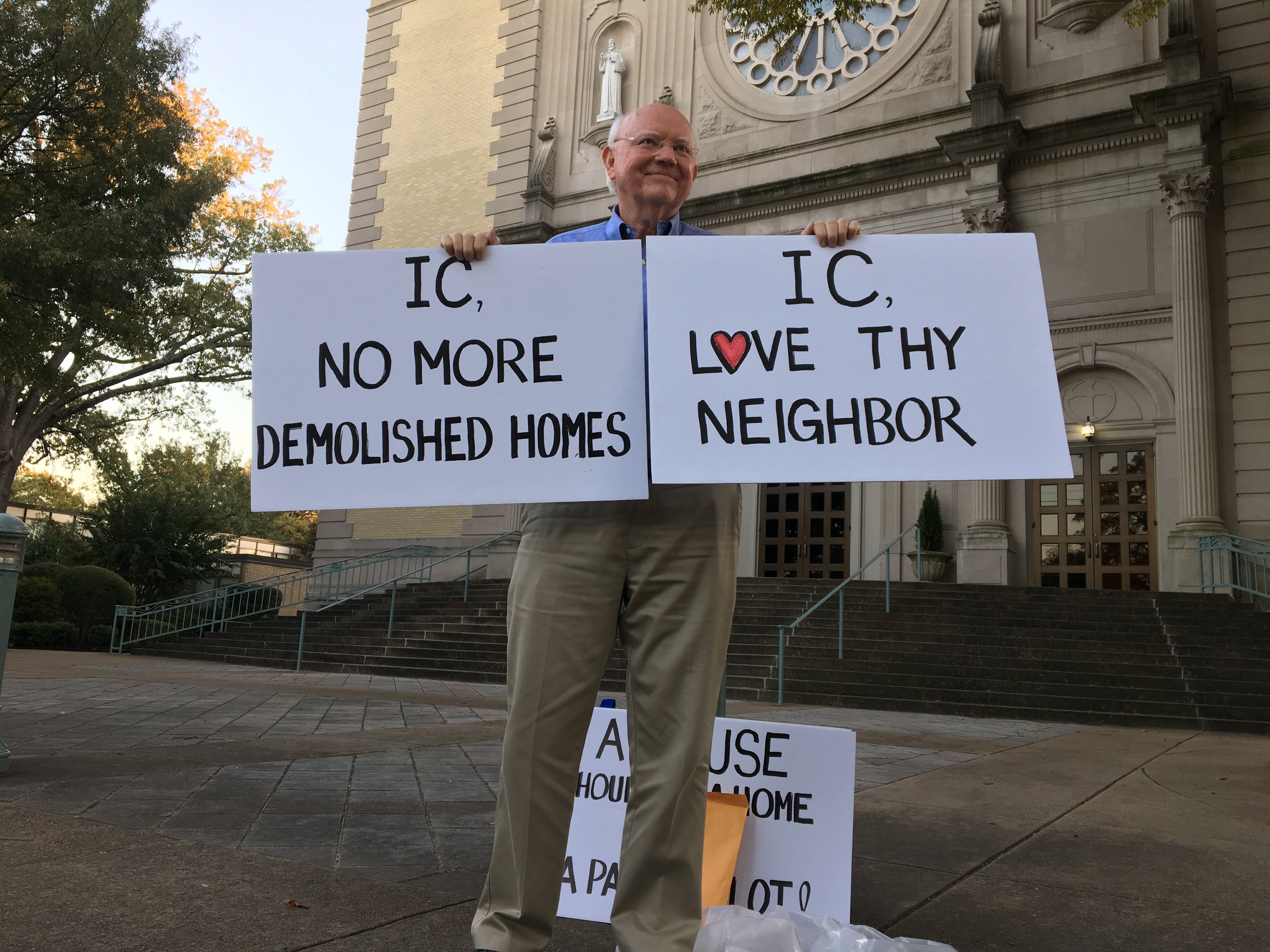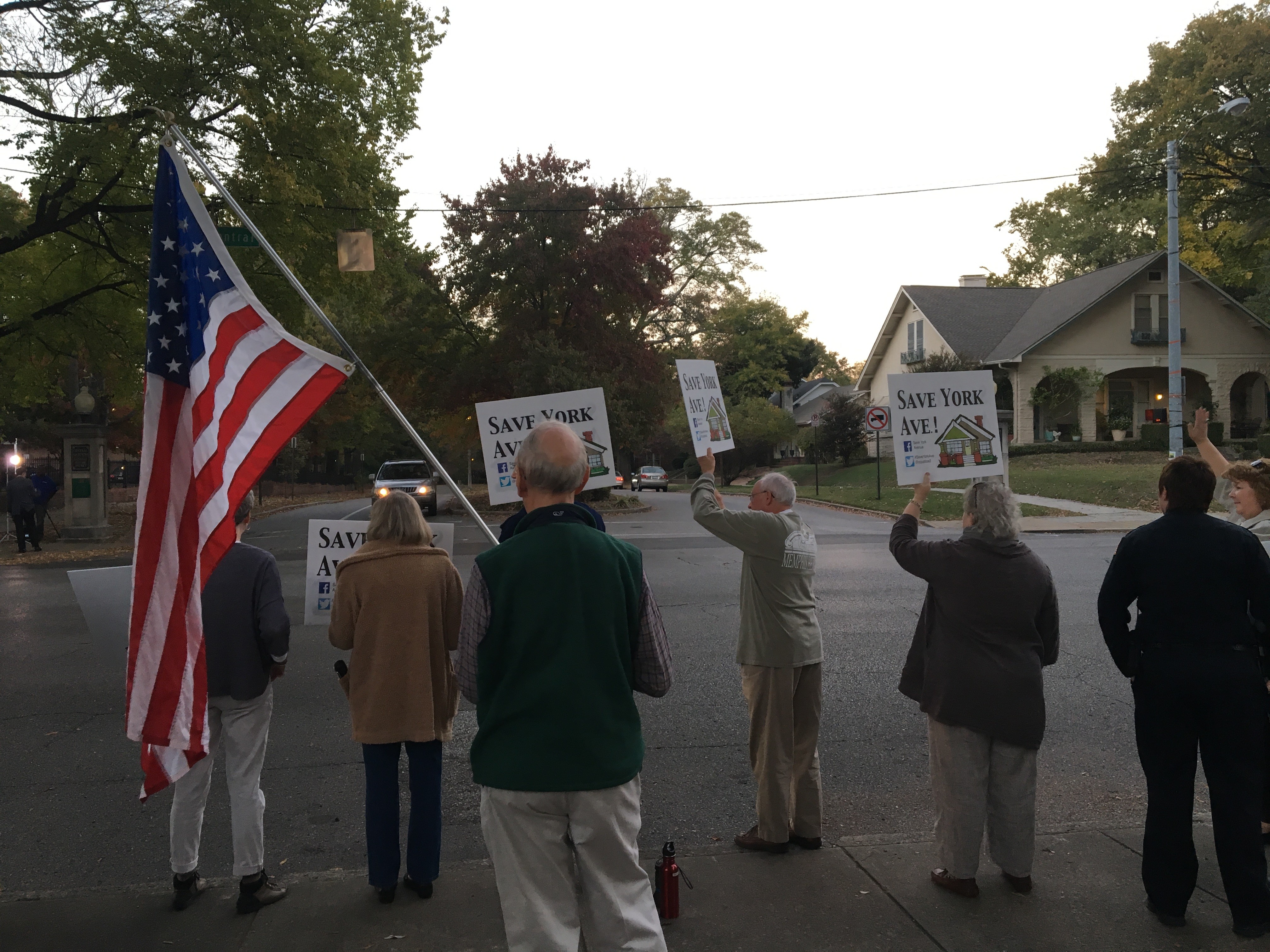 Joshua Cannon
Joshua Cannon
Two separate homebuyers are interested in a near-century old midtown house that was recently deeded to The Church of the Immaculate Conception to be razed for the expansion of a parking lot and soccer field.
 Joshua Cannon
Joshua Cannon
“York had not been on our radar,” said one interested homebuyer who asked to remain anonymous. “We were driving through the neighborhood and saw ‘Save York’ signs. We enjoyed the possibility of what the house provided and liked what it could become.”
Those “Save York” signs represent what 40-year resident Candy Justice calls a “year-long grassroots effort” to preserve the home, located at 1722 York Avenue in the heart of the historic Central Gardens neighborhood. Though the homebuyer attempted to reach Ben Wheeler, a church member who bought and donated the property to IC, they were never contacted.
The homebuyer said he found out last week that the house had been officially transferred to the church, and that they haven’t discussed the possibility of selling. IC officials said in a statement they have “been blessed with a generous gift of the property” and “view this gift as an opportunity to grow our campus for the benefit of the Parish and for the children” of the school.
 Joshua Cannon
Joshua Cannon
“To explore all of our options and possibilities, we have engaged a team of professionals first to thoroughly inspect and evaluate the current condition of the property. Once the final assessment has been made, the team will provide the results to determine the best use of the property and outline the required process. The due diligence process will span the next two or so months. Rest assured, we will comply with the various governmental regulations,” the statement read.
Criticism of the church’s plans turned to protest Wednesday evening. About 40 residents and members of neighboring communities stood in front of the Cathedral along Central Avenue with flashlights and signs that read “IC, love thy neighbor.”
“We don’t hate IC at all, but we hate their efforts to destroy the residential integrity of our street,” Justice said. “York is a very close street. So many of us have been part of four or five generations of families living here and we love each other even more than the houses here.”
[pullquote-1]Richard Groff moved to York Avenue almost three years ago to live behind his church. Groff attended IC as a parishioner for eight years until two weeks ago — when he stopped due to a “lack of communication.” With a career in property development, Groff created a preliminary layout that would allow the church to expand parking and the soccer field without demolishing the house. He and a group of York residents met with IC on August 25 to discuss the plan, but were told a new bishop had been instated and no decision could be made.
 Joshua Cannon
Joshua Cannon
“There’s a lot of investiture from the neighborhood in this church and this school,” Groff said. “Up until the middle of the summer, I didn’t understand what the fuss was. But then I heard what had happened in the past.”
The house located at 1722 York Avenue would become the fourth of three previous neighborhood homes demolished for the church’s expansion. Eddie Hutchison, a board member on the Central Garden Association, said the Association signed a resolution in 1992 that says they wouldn’t oppose any expansions made by IC.
“Their hands are tied,” Hutchison said. “The feel [the resolution] is still in place. But things have changed since then.”
June West, the executive director of Memphis Heritage, said a large number of York Avenue residents were not aware the resolution was signed. West said her organization, a nonprofit advocacy group for historic Memphis properties, as well as the Midtown Action Coalition, have stepped up to bat for the neighborhood.
“In order to demolish the house, IC has to go before the local Landmarks Commission and get permission,” West said. “That process has not begun yet. Our hopes are that the neighborhood will be able to present the case to the commission and that it will be stopped.”
West said IC’s selling the home to an interested buyer would result in capital for the church.
“It’s a win-win situation,” she said.